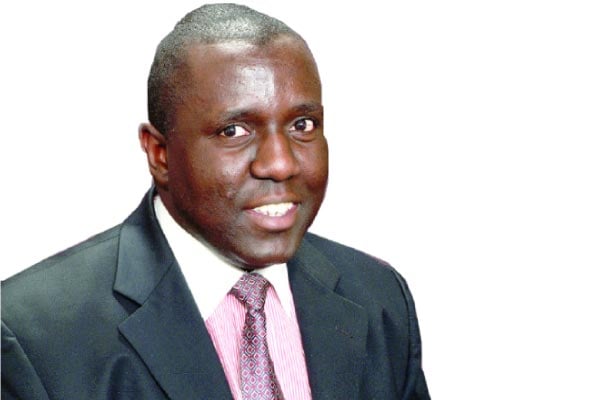On Kasese’s Philip Rwabwogo and DR Congo’s captive market

The irony of President Museveni’s star act at the Africa Now Summit in Kampala and the material reality of the small matter at the Uganda-Rwanda was not lost on me. More so when we were later to learn that Rwanda had (sort of) slapped a trade embargo onto Uganda.
Now, the word ‘embargo’ is abominable; even without contrasting it with what Mr Museveni was talking about at the Africa Now Summit in Kampala. My take: Uganda should just start taking the market opportunities in eastern Democratic Republic of Congo seriously.
Whereas the Rwandan market comes with some advantages because of her relatively developed infrastructure, the recent border closure by Rwandan authorities should be an eye-opener. The sustainability of this market will need more than just produce-for-export sloganeering.
The DR Congo offers opportunities that border on captive market status. And if we appreciated these opportunities from the DR Congo, our first action should be to establish industrial parks in Kasese and Arua. Another industrial park in Gulu would cater for the South Sudan market.
By 1975, Uganda’s neighbours were scavenging on what was left of the carcass of Uganda’s economy. Kenya’s attempt to develop Kisumu as an industrial hub had an eye on exports to Uganda. Mobutu Ssese Seko of Zaire (DR Congo) also tried to turn Kisangani into manufacturing hub with an eye on Uganda.
There was Sozaplast (Societe Zairoise de Plastique), Saza (Savon Zairoise), Sotexik (Societe Texitile du Kisangani) and many others. Ugandans smuggled coffee to Zaire and returned with cheap cotton fabrics made by Sotexik, soap made by Saza, plastic shoes made by Sozaplast. And we also imported their music.
If Mr Museveni were serious about Uganda, this was supposed to be our turn (to avenge what Zaire visited on us). My part of Uganda was economically and socio-culturally annexed to Mobutu’s Zaire. Factories were established in Kisangani to supply western Uganda. Our language was influence by French and Lingala verbiage.
Kasese’s Philip Rwabwogo, the son of Emmanuel T. Ngalyakayi, is an industrialist from Kasese. His company, Reco Industries Ltd, manufactures mattresses (his flagship product), tomato ketchup and many other products.
In fact, Reco Industries Ltd is more like an industrial park than just a mere factory. Don’t mind the name Rwabwogo, for Philip, like me, is a bona fide Mukonzo; and his father’s name Ngalyakaye means ‘I eat what is mine’. Which you can stretch to mean ‘I work for what I eat’.
What should Mr Museveni borrow from the name or the word ‘Ngalyakayi’? That Uganda will have to work for what it eats in her export markets (whether in Rwanda, DR Congo or elsewhere). And that this comes with making sacrifices. Challenge is that this border thing, now crawling into a trade embargo, will affect Uganda (either way it ends).
Last November, I bought a mattress from Reco’s outlet on Nkrumah Road in Kampala. I don’t know the volume of Reco’s sales to DR Congo. But with government’s right attitude (policy tools) to local investment, products of Kasese’s Reco Industries Ltd would be household names in all the metropolises in eastern DRC. The government of Uganda should be helping people like Rwabwogo to exploit markets in eastern DR Congo. But Ugandan will first need to have a good relationship with the DRC.
How and why doesn’t Uganda exploit markets in South Sudan and DR Congo? Someone please, tell Mr Museveni that any political or military influence without trade ezali lokola litanga ya mbula pembeni ya ebale (Lingala - a raincloud near a river). Rainclouds are for farmlands, not rivers.
Mr Bisiika is the executive editor of East African Flagpost.
[email protected]




